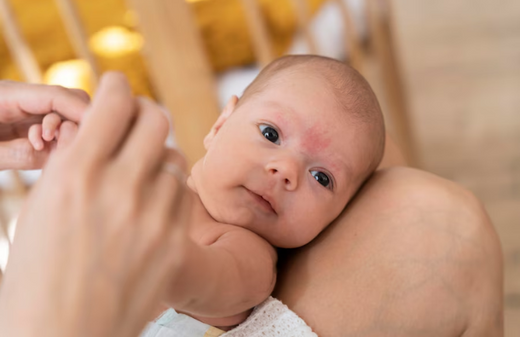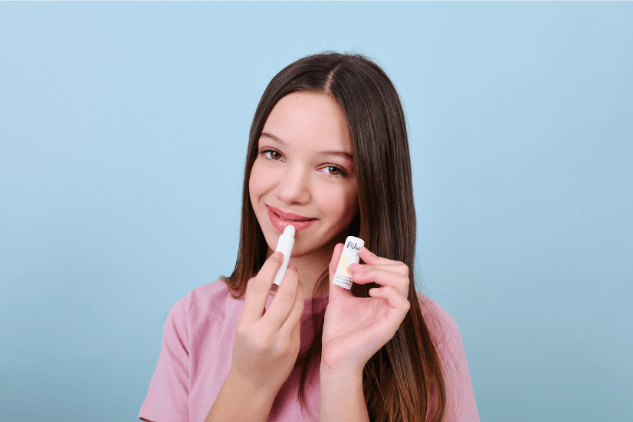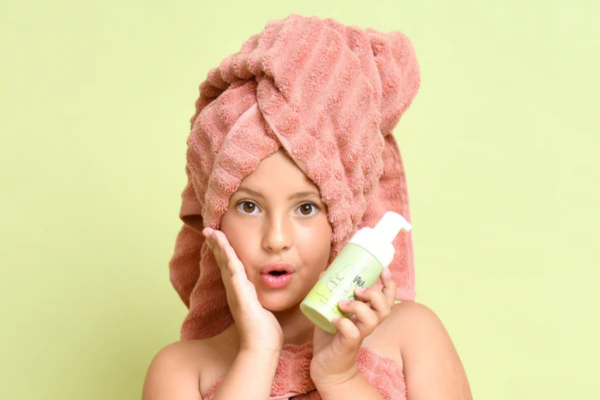
How to Get Rid of Dry Skin on Baby’s Face?
Human beings are at their most vulnerable as infants. Naturally, they need a mother’s care to even survive beyond this age. However, even when you meet the basic needs of a baby, certain conditions may pique your concern. One such major concern is seeing baby dry skin on face.
Dry skin is not a new skin condition. It’s very common in pre-teens and adults. However, this condition is a cause for concern in babies. Their skin is already quite delicate - any condition will just stress the skin’s defenses. Worry not! It’s now quite easy to know how to get rid of dry skin on baby face! Read on to learn more…
Key Takeaways
- Babies’ skin barrier is about 30% thinner than that of adults.
- Dry climates and cold winters can exacerbate dry skin on a baby’s face.
- Common irritants such as laundry detergents and perfumes can trigger dry skin.
- Excessive washing and prolonged hot water baths strip natural oils, thus leading to dryness.
- Regular application of a gentle moisturiser can easily answer how to get rid of dry skin on baby face.

Understanding Dry Skin in Kids
Common Symptoms of Baby Dry Skin
- Flakiness: Visible flaking or peeling of the skin on the face.
- Cracking: Skin develops cracks that may become infected.
- Ashiness: Skin appears dull and ashy.
- Rough Patches: These can be felt as a rough texture on skin that feels extremely different from smooth skin.
- Redness: Dry skin may also lead to inflammation, and thus, redness.
Common Causes of Dry Skin on Baby’s Face

- Newborn skin peeling: A common condition due to transitioning from the womb environment to the outer world. This usually happens in the first two weeks and is a completely natural process.
- Overexposure to water: Natural oils exist to protect and hydrate the skin. Overexposure to water, especially during baths, can strip away these oils and lead to dryness.
- Dehydration: A lack of fluids can also lead to dryness. If your baby is not fed adequately, or your environment is far too hot, fluid loss might be a major issue.
- Use of alcohol-based products: Alcohol acts as a drying agent. If such products are used on a baby’s delicate skin, they can lead to dryness and irritation.
- Ichthyosis: A genetic skin condition involving red scaly patches on the skin. It requires ongoing management to ensure skin hydration.
- Eczema: Also known as atopic dermatitis, this inflammatory skin condition causes dryness, redness, and itching. Can be easily cured via regular moisturising.
How To Prevent Babies Dry Skin?
Bath-time routines
Don't use soap

Moisturise

Use the right laundry products
Talk to your doctor
Final Thoughts
Frequently Asked Questions
1. When should I consult a doctor about my baby's dry skin?
Consult a doctor if the skin is cracked, bleeding, infected, or if redness and itching persist despite moisturizing. Also seek advice if rashes spread or worsen.
2. Can breast milk help treat dry skin on my baby's face?
Yes, breast milk has natural antibacterial and anti-inflammatory properties that may soothe mild dryness, but consult a pediatrician if irritation continues.
3. How often should I moisturize my baby's face?
Gently apply a fragrance-free baby moisturizer 2–3 times daily, especially after cleansing or when skin feels dry.
4. Should I avoid daily baths if my baby has dry skin?
Limit baths to 2–3 times per week with lukewarm water and mild soap. Overbathing can strip natural oils and worsen dryness.
5. Is it normal for newborns to have dry skin on their faces?
Yes, many newborns have peeling or flaky skin in their first weeks as they adjust outside the womb. It usually resolves with gentle care.
6. Can cold weather or indoor heating cause dry skin in babies?
Yes, both cold air and dry indoor heat can dehydrate a baby's skin. Use a humidifier and protect their face outdoors in winter.
7. Can dry skin on the face be a sign of eczema?
Possibly—if patches are red, scaly, and itchy, it could be eczema (atopic dermatitis). A paediatrician can diagnose and recommend treatment.



